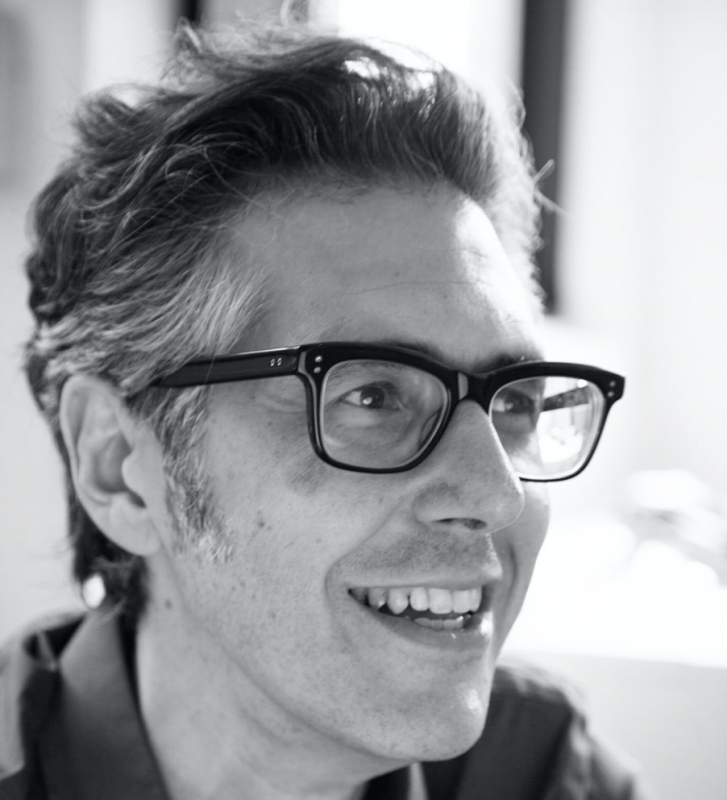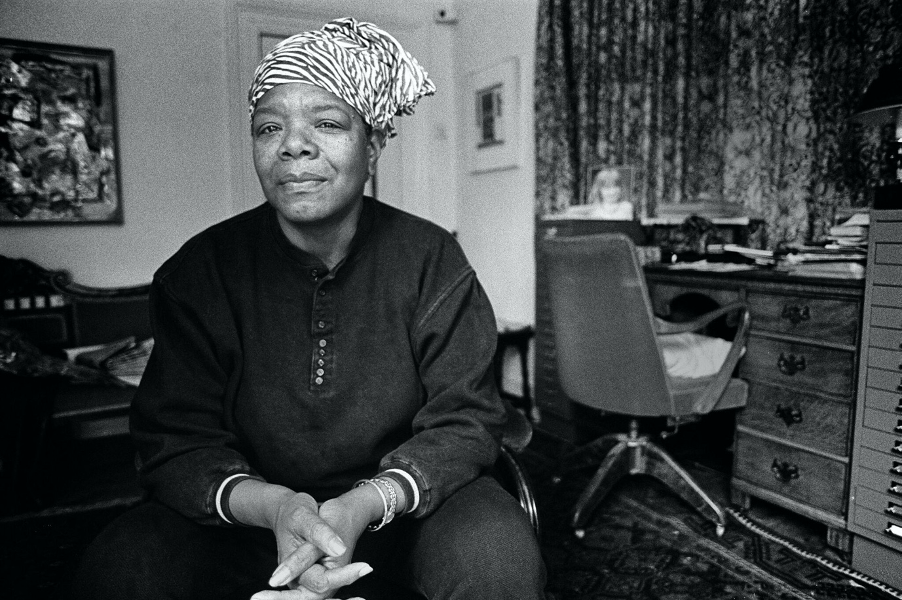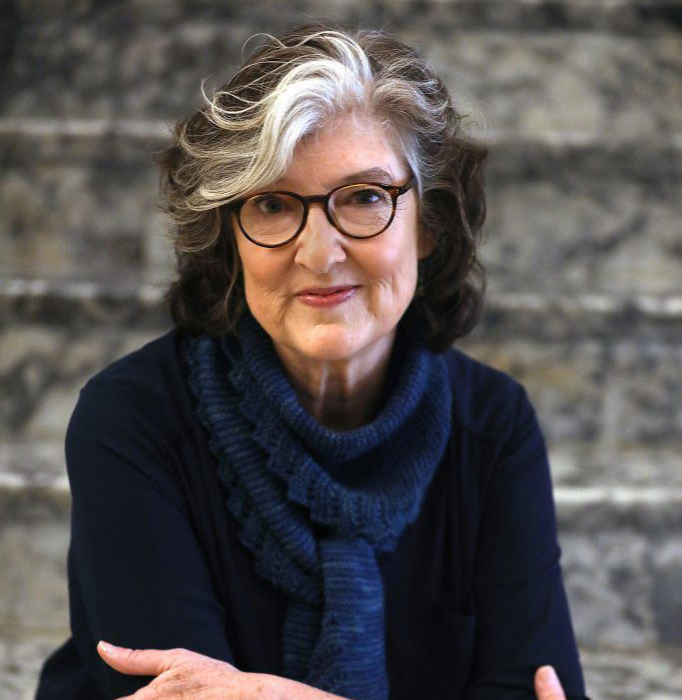Diversions
Our Favourite Advice from Iconic Graduation Speakers
Good advice from a few people who’ve been there and back again.

In 1974, Kurt Vonnegut asked the graduating classes of Hobart and William Smith Colleges, “What should young people do with their lives today?” Like any good graduation speaker, he answered his own rhetorical question: “Many things, obviously. But the most daring thing is to create stable communities in which the terrible disease of loneliness can be cured.”
It’s a good perspective for any era, and in the age of social distancing, Vonnegut’s words are as relevant as they’ve ever been. That’s because good ideas hold up, and they’re worth remembering. So instead of posting our graduation pictures to Facebook, we’re showing our solidarity with the class of 2020 by sharing some good ideas from our favourite graduation speeches.

Ira Glass: Create with Conviction
Goucher College, 2012

For a segment on This American Life’s very first episode in 1995, Ira Glass called his parents to get their thoughts on his latest endeavour in public radio. His father didn’t pick up the phone and his mother expressed concern that his public radio show focusing on stories of common people was too niche. Despite the lack of support, Glass continued producing the show, and today it reaches nearly 6 million listeners a week. Not bad.
Years later, he told the graduating class at Goucher College, “Now you are going to join the confusing mess of life with me and your parents and the rest of us, that we’ve been living in for years ahead of you, where it is not clear at all how to evaluate anything that you are doing or how you’re going to spend the rest of this time on this earth. Welcome to your future.
“And the good news is that you can will things into existence. Like, I was not a very good writer, and I just willed it to happen by trying and trying and trying. You leave this school as well-armed for battle as anyone is. You’re doing as well as anybody. And, in my case, you just have to make up what you’re going to be. “
He acknowledged this is no small task, “Finding what you want to do next is a job. It’s a task: You have to set aside hours in the day, and you have to be a soldier, and you have to fight for what you’re going to make in yourself.”
Bill Watterson: Stay Curious
Kenyon College, 1990

For a segment on This American Life’s very first episode in 1995, Ira Glass called his parents to get their thoughts on his latest endeavour in public radio. His father didn’t pick up the phone and his mother expressed concern that his public radio show focusing on stories of common people was too niche. Despite the lack of support, Glass continued producing the show, and today it reaches nearly 6 million listeners a week. Not bad.
Years later, he told the graduating class at Goucher College, “Now you are going to join the confusing mess of life with me and your parents and the rest of us, that we’ve been living in for years ahead of you, where it is not clear at all how to evaluate anything that you are doing or how you’re going to spend the rest of this time on this earth. Welcome to your future.
“And the good news is that you can will things into existence. Like, I was not a very good writer, and I just willed it to happen by trying and trying and trying. You leave this school as well-armed for battle as anyone is. You’re doing as well as anybody. And, in my case, you just have to make up what you’re going to be. “
He acknowledged this is no small task, “Finding what you want to do next is a job. It’s a task: You have to set aside hours in the day, and you have to be a soldier, and you have to fight for what you’re going to make in yourself.”
Maya Angelou: Confront Life
Wellesley College, 1982

Maya Angelou knew a thing or two about confronting demons. She overcame an abusive childhood and eventually wrote about it in her first book, I Know Why the Caged Bird Sings. It was promptly banned by a number of schools for its frank depiction of that abuse. She went on to write 35 more books, with 30 of them becoming best sellers.
“You will be challenged mightily, and you will fall many times…You must encounter, confront life. Life loves the liver of it”
“You will be challenged mightily, and you will fall many times,” she told Wellesley’s graduates. “But it is important to remember that it may be necessary to encounter defeat, I don’t know. But I do know that a diamond, one of the most precious elements in this planet, certainly one in many ways the hardest, is the result of extreme pressure, and time. Under less pressure, it’s crystal. Less pressure than that, its coal, less than that, its fossilized leaves are just plain dirt. You must encounter, confront life. Life loves the liver of it.”
Barbara Kingsolver: Find Your Tribe
Duke University, 2008

Shortly after she published her account of her family’s efforts to spend a year eating locally in Animal, Vegetable, Miracle, author Barbara Kingsolver focused her remarks to Duke’s graduating class on community. “As you leave here, remember what you loved most in this place,” she said.
“I mean the way you lived, in close and continuous contact. This is an ancient human social construct that was once common in this land. We called it a community. We lived among our villagers, depending on them for what we needed. If we had a problem, we did not discuss it over the phone with someone in Bhubaneswar. We went to a neighbor. We acquired food from farmers. We listened to music in groups, in churches or on front porches. We danced. We participated. Even when there was no money in it. Community is our native state. You play hardest for a hometown crowd. You become your best self. You know joy.”
She continued to articulate the possibilities created by community this way: “You can be as earnest and ridiculous as you need to be, if you don’t attempt it in isolation. The ridiculously earnest are known to travel in groups. And they are known to change the world.”
Will Ferrell: Keep Throwing Darts
University of Southern California, 2017

Will Ferrell began his comedy career shortly after graduating from USC with improv shows and some standup, a medium he didn’t have much confidence in. “But I didn’t care,” he said, “I was just trying to throw as many darts at the dart board, hoping that one would eventually stick.”
“In fact I didn’t read any reviews because once again, I was too busy throwing darts at the dartboard, all the while facing my fears”
He went on, “I wasn’t extremely confident that I would succeed during this time period, and after moving back to LA there were many a night where in my LA apartment, I would sit down to a meal of spaghetti topped with mustard, with only $20 in my checking account and I would think to myself, ‘Oh well I can always be a substitute schoolteacher.’ And yes, I was afraid. You’re never not afraid. I’m still afraid.”
Ferrell kept at it, eventually earning a spot on Saturday Night Live and spending seven seasons on the show, despite a lukewarm reception. “The venerable television critic for the Washington Post Tom Shales came up to me during my last season of the show. He told me congratulations on my time at the show and then he apologized for things he had written about me in some of his early reviews of my work. I paused for a second before I spoke, and then I said, ‘How dare you, you son of a bitch?’ I could tell this startled him, and then I told him I was kidding, and that I’d never read any of his reviews. It was true, I hadn’t read his reviews. In fact I didn’t read any reviews because once again, I was too busy throwing darts at the dartboard, all the while facing my fears.”

